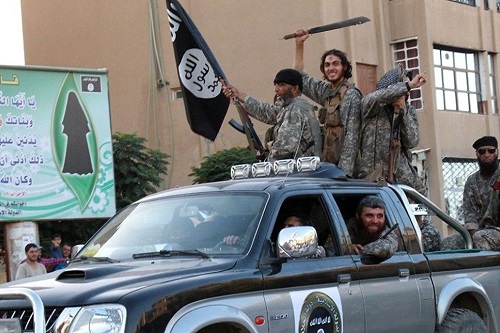CC photo
By
Ricardo Swire
Counter terrorism and national security officials in the Caribbean are bracing for the effects of America’s sudden military troop withdrawal from Syria and key Middle East areas. Initially the US plus sixty-seven countries formed a coalition that trained, equipped and provided air support for regional forces that confronted ISIS, especially in Iraq. The US also supported Syrian forces fighting ISIS in Syria.
Three years ago the approximately one hundred thousand ISIS militants controlled thirty-five thousand square miles across Syria and Iraq, comparative to the size of Maine, USA. The organization’s self-declared religious Caliphate attracted multiple categories of extremists, kindred groups around the world pledging allegiance to ISIS’ top cleric. Several Trinidadian Muslims and other disaffected Westerners flocked to Syria and Iraq to fight. High-profile terrorist acts were committed in Asia, Brussels, London and Paris.
In June 2016 a twenty-nine year old American born ISIS “soldier of the Caliphate” based in Orlando, Florida made a 911 call before he invaded a homosexual nightclub, then shot and killed fifty patrons. The terrorist was subsequently neutralized by law enforcement officers. As of October 2017 ISIS’ Caliphate measured one quarter of 2015’s size. In 2018 security forces retook Raqqa, on the northeast bank of the Euphrates River, ninety-nine miles east of Aleppo, Syria. More ISIS territorial losses reduced geographical reach.
In November 2018 ISIS militants in the Deir al Zour stronghold killed several US backed local gunmen. Reports highlighted that ISIS masterminded kidnappings and assassinations in neighboring Iraq. On Monday December 31st 2018 the US President tweeted; “We have won against ISIS in Syria. ISIS is mostly gone.” Shortly before four US soldiers were killed and three injured by an ISIS suicide bomber in Maribij, Syria. The targeted city was routinely patrolled by American military.
Caribbean counterterrorism and national security officials are cognizant that in 2006 ISIS quickly rebounded from near extinction, following its founder’s termination by security forces. Many ISIS core members were recruited from Saddam Hussein’s disintegrated Army after the US invasion of Iraq. Despite high level political proclamations ISIS militants still firmly control territories in Afghanistan, Africa, Libya and the Philippines.
The US President’s hasty military troop withdrawal from such key counter-terrorism alliances will undermine America’s negotiating position between the Taliban and Afghan officials. In 2018 after the US coordinated security forces recapture of Raqqa “Syrian Capital” soldiers, or partners of American military in Syria, allowed thousands of non-national ISIS militants to escape with weapons and ammunition.
Ricardo Swire
Ricardo Swire is the Principal Consultant at R-L-H Security Consultants & Business Support Services and writes on a number of important issues.



No Comments Yet!
You can be first to comment this post!